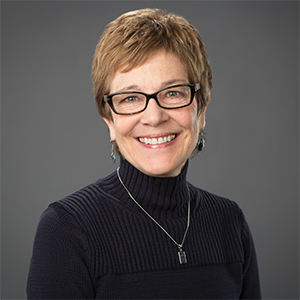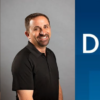As the Reno/Sparks area continues to boom with new companies and people moving to the region, the College of Liberal Arts at the University of Nevada, Reno is creating new programming with workforce development and real-world applications at its center.

At Dickson Realty, we like to keep tabs on how our local university is engaging in our community. I’m also proud to be a member of the University of Nevada, Reno College of Liberal Arts Dean’s Advisory Board. So, I sat down with Debra Moddelmog, dean of the College of Liberal Arts and professor of English, to discuss the college’s goals for this upcoming year. We discussed the unique role the liberal arts play in developing the next generation of the workforce and how students with this background can help solve local, national, and global community challenges. Moddelmog emphasized the positive impact these students have locally and the desire to grow their internship program with local organizations to prepare students with real-world experience.
In what ways can the liberal arts help with workforce development?
People don’t automatically think of the liberal arts in terms of workforce development. But here at the college, we’re focused on connecting our programs to the needs of our community, including creating a high-caliber workforce that helps build a stronger community overall. Our applied liberal arts initiative specifically targets those issues.
View this post on Instagram
Do you have any unique programs that directly tackle more recent challenges?
Our Pack Teach program provides a joint degree between the College of Liberal Arts and the College of Education and Human Development. Students can major in education and English, history, political science, sociology, French, and Spanish. We’re planning to add art soon. We want to train middle and high school teachers who are passionate about their subjects and understand the importance of communication, critical thinking, civic engagement, creativity, and learning different languages.
Currently, Nevada is experiencing a severe teacher shortage. We have a fundamental responsibility to provide our community with qualified and diverse teachers. We’re proud that this program has doubled in size in two years and that our students want to teach at our local schools. This not only helps our current community, but it’s attractive to people who are thinking about relocating here and want quality schools for their children.
We’re also forming a new criminal justice specialization with an interdisciplinary focus on racial inequities and social justice that includes lenses in history, political science, gender, race, identity, philosophy, communication studies, sociology, and other areas. To address systemic racism, you have to think from multiple angles and find new solutions. You have to consider income disparities, education system inequities, historical trends, and how society behaves at large. We hope our students who pursue this new justice studies specialization will apply that knowledge to work with advocacy groups and the criminal justice system to create more possibilities for justice in our society.
How does a liberal arts degree prepare students for the workforce?
We want to show companies considering relocating to Reno that we already have a highly qualified workforce available. Our Applied Liberal Arts initiative demonstrates workforce-ready applications from a variety of subjects. Our department of English’s public and professional writing minor prepares students for communications fields and shows students they can apply it to technical and science writing. Our department of history’s shared history program focuses on community storytelling and capture local experiences within global phenomena, such as the pandemic, which prepares students for careers in historical documenting, museum work, or creating websites. Our goal is to demonstrate unique ways students can apply these degrees to their future plans.
We’re also helping our students get the applied experience that employers want by assisting them to find internships. We even have a fund to assist students financially when they find an attractive unpaid internship, so they don’t have to decide between a day job and an opportunity to boost their career. We are constantly looking to partner with organizations to create internship opportunities in areas such as writing, graphic design, language translation, politics, the arts, and videography.
View this post on Instagram
Do you have any programs in the development stages that you are excited about?
The college is focused on diversity, equity, and inclusion and we keep building curriculum and programs in this area, including new minors in indigenous studies, Latinx studies, and social justice studies. We are working with the Reynolds School of Journalism on a program focused on film production and film studies. We are exploring possibilities for creating an interdisciplinary, undergraduate degree in equity leadership in conjunction with our gender, race, and identity major. This is directly related to the BLM movement from last year and to a surge of businesses looking to institute diversity, equity, and inclusion measures. We are also preparing to launch a new minor in political communication and advocacy, a joint endeavor of our departments of political science and communication studies.
What are your thoughts on programs in the liberal arts shrinking due to budget cuts?
When our nation gets into tight budget times, there’s been a tendency to clamp down on programs in the liberal arts, fields that can, unfortunately and incorrectly, be viewed as non-professional and thus non-essential. But at the University of Nevada, Reno, we pride ourselves on creating a 21st-century education for all students. Every department in our College of Liberal Arts—which covers the arts, the humanities, and the social sciences—contributes to workforce development and educates our students to think about critical questions that we’re facing as a nation and even as a world. Challenges abound right now: the ethics and public responsibilities of technology and science, deeply understanding social and racial justice, addressing policy matters related to climate change and the environment, learning how to be a civically engaged person in a polarized political system, understanding how to communicate across our differences, and learning how to respect and value diversity, equity, and inclusion. The liberal arts train students with unique lenses to address and understand these issues in innovative ways.
View this post on Instagram
How can the liberal arts contribute to the challenges our society currently faces?
We have a vital role to play at this critical time in our nation’s history when we need people who think deeply about these matters and can engage productively with one another. This is the value of the humanities, the arts, and the social sciences: to develop our next generation of leaders. We can’t afford to pull back on that kind of education. Instead, we want to guide creative individuals who lead us into positive future directions.



